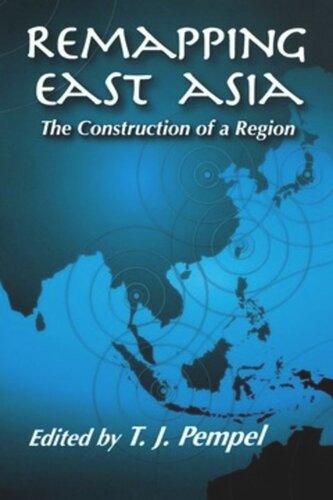

Most ebook files are in PDF format, so you can easily read them using various software such as Foxit Reader or directly on the Google Chrome browser.
Some ebook files are released by publishers in other formats such as .awz, .mobi, .epub, .fb2, etc. You may need to install specific software to read these formats on mobile/PC, such as Calibre.
Please read the tutorial at this link: https://ebookbell.com/faq
We offer FREE conversion to the popular formats you request; however, this may take some time. Therefore, right after payment, please email us, and we will try to provide the service as quickly as possible.
For some exceptional file formats or broken links (if any), please refrain from opening any disputes. Instead, email us first, and we will try to assist within a maximum of 6 hours.
EbookBell Team

4.1
20 reviewsAn overarching ambiguity characterizes East Asia today. The region has at least a century-long history of internal divisiveness, war, and conflict, and it remains the site of several nettlesome territorial disputes. However, a mixture of complex and often competing agents and processes has been knitting together various segments of East Asia. In Remapping East Asia, T. J. Pempel suggests that the region is ripe for cooperation rather than rivalry and that recent "region-building" developments in East Asia have had a substantial cumulative effect on the broader canvas of international politics. This collection is about the people, processes, and institutions behind that region-building. In it, experts on the area take a broad approach to the dynamics and implications of regionalism. Instead of limiting their focus to security matters, they extend their discussions to topics as diverse as the mercurial nature of Japan's leadership role in the region, Southeast Asian business networks, the war on terrorism in Asia, and the political economy of environmental regionalism. Throughout, they show how nation-states, corporations, and problem-specific coalitions have furthered regional cohesion not only by establishing formal institutions, but also by operating informally, semiformally, or even secretly.